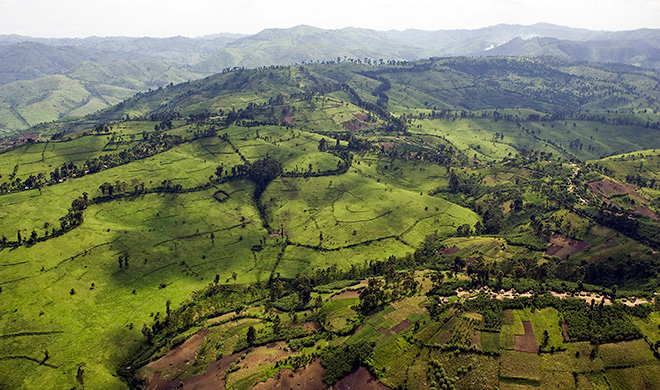
Executive Summary
Natural resources have fueled violent armed conflict and invited corporate misbehavior for decades in eastern Democratic Republic of the Congo (“Congo”), but that trend is beginning to shift. While much of the minerals sector still lacks adequate security, and armed groups remain active, conditions in at least some areas are improving. State and regional institutions are beginning to advance reforms in the minerals sector, and there is a growing push for foreign private investment in the region.
Indeed, the goal of a safer and more regulated minerals market in eastern Congo and the Great Lakes region of Africa is slowly advancing, making sound investment and sourcing an increasing possibility. This shift is also linked to broader political efforts to establish sustainable peace. Due to the region’s vast minerals wealth, economic development and minerals regulation are critical to the safety and wellbeing of its citizens. Meanwhile, there is growing awareness of the importance of corporate social responsibility related to private foreign investors in fragile, resource-rich states. Investment in the minerals sector requires companies to attend to many core principles of peacebuilding: transparency, human rights, and environmental management. As minerals sector regulation continues, companies and state actors should pursue investment and development with these larger goals in mind.
Congo remains a challenging operating environment for foreign investors and mining companies, with high corruption rates, severe gaps in infrastructure and rule of law, and significant security concerns. However, change is afoot, making responsible, profitable investment more realistic than in the past. A multi-stakeholder group has validated 112 mines in Congo as “conflict-free,” and 21 companies are now sourcing from 16 of them. Section 1502 of the 2010 Dodd-Frank Wall Street Reform and Consumer Protection Act (“Dodd-Frank law”) spurred market changes that have helped significantly reduce the involvement of armed groups in the tin, tantalum, and tungsten (“3T”) mines, giving rise to new clean sourcing initiatives ripe for investment. Artisanal gold mining, however, remains a significant challenge.
A more regulated mining sector has the potential to benefit both local communities and private investors and companies by improving security, economic opportunity, and regional peacebuilding. Early progress in mineral sector reform is starting to benefit local communities and facilitate economic development. Meanwhile, regional dialogues aimed at formulating political agreements and plans for implementing the Peace, Security and Cooperation Framework are underway, led by Angolan President José Eduardo dos Santos and in coordination with U.S. Special Envoy Russ Feingold and the new U.N. Special Envoy, Said Djinnit.
A critical part of whether investors and companies will both make a profit and contribute to sustainable peace and development in the Great Lakes region is whether they conduct their operations in accordance with high standards of responsible business practice. Foreign investment must promote, not undermine, key good governance priorities. These priorities include advancing rule of law, eliminating human rights abuses within the security sector, conserving the environment and rich biodiversity, and respecting indigenous rights, land rights, and freedom of information. Companies must invest responsibly to ensure that they do good as they seek to do well and that local Congolese communities benefit from Congo’s mineral wealth.
This report provides guidelines for companies investing in and sourcing from mines in the Great Lakes region, particularly eastern Congo, to ensure they do so in a responsible manner and maximize their investment opportunities. In particular, they should operate with transparency, engage affected communities meaningfully and responsibly, and prioritize environmental protection. Numerous international guidelines provide benchmarks to guide strategy development. Aligning business practices with leading-edge international principles and values will help companies operate more efficiently, fulfill their legal and ethical obligations, build and protect brand reputation, and encourage peace in the region.

